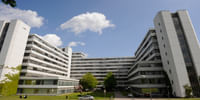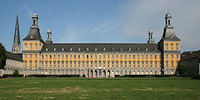With constantly increasing demands on high system reliability and availability, the subject of process monitoring, fault diagnosis and fault-tolerant systems is becoming increasingly important both in research and in industrial applications. Applications can be found beyond classic control and regulation technology in industry in the area of developments under the keyword "Industry 4.0", distributed systems and similar areas that arise from the merging of classic areas of application (e.g. in mechatronics) and distributed working methods.
The course in the master’s degree in “Automation and Safety” builds on the fundamentals that were taught in the bachelor’s degree in “Electrical and Electronic Engineering”.
The following areas are deepened as further in-depth fundamentals:
- Mathematics (including vector analysis, numerical mathematics) and additional physical basics (fluid dynamics),
- Automation technology (with in-depth theoretical methods),
- IT (real-time systems and distributed computer systems).
In addition to application subjects, fault diagnosis and fault tolerance in technical systems are dealt with, which are of particular importance in view of the complexity of modern technical systems with a high-risk potential.
The two areas of specialization are offered:
- "Automation and Control Engineering" and
- "SAFE Systems"
The master’s degree enables students to solve particularly complex or demanding tasks. The following special goals are aimed at:
- Basic ability to familiarize oneself with theoretically complex topics,
- Ability to solve even complex automation tasks that require sophisticated methods of modeling, simulation, and control.












.png?tr=h-40,w-40,c-force)
